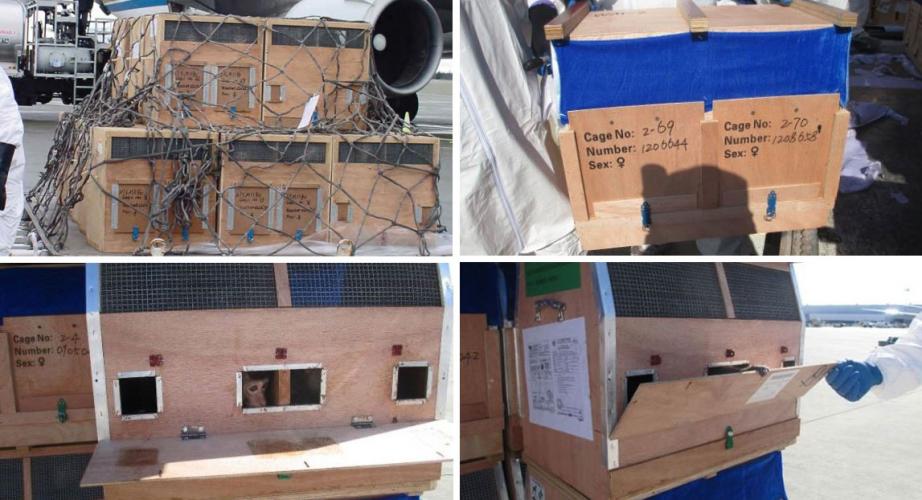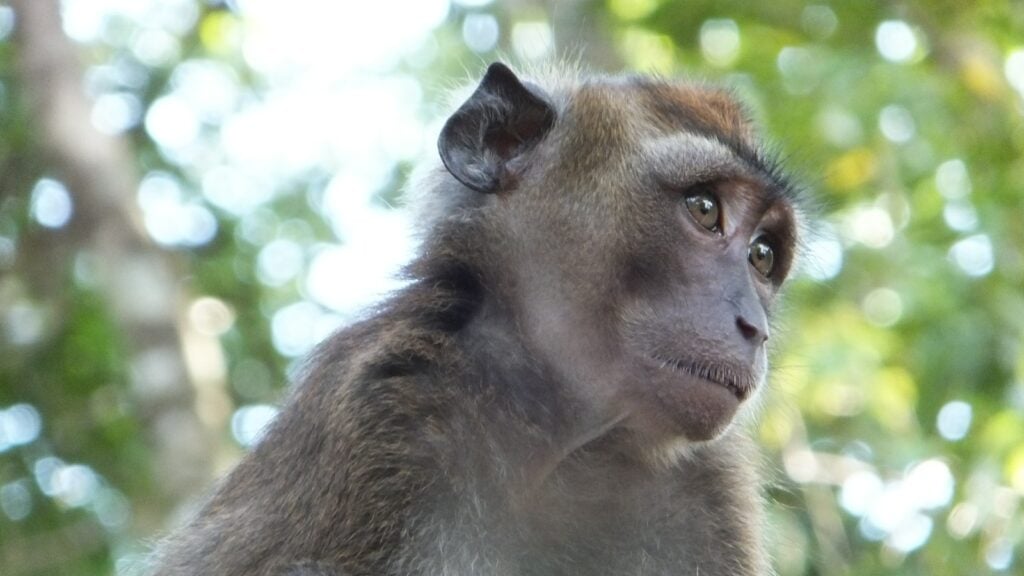Monkeys lost their lives over the weekend during a lengthy transit undertaken for the purposes of animal testing, according to reports.
As part of the experiments, 720 long-tailed macaques were flown from Cambodia to Houston, Texas. It’s believed that they were set to undergo toxicology tests.
The monkeys traveled by air for a total of 24 hours via Spanish airline Wamos Air, on flight EB998. That’s according to information retrieved by the Action for Primates (AfP), an animal protection organization.
The primates spent an additional six hours at a stopover in Tbilisi, Georgia, which included a three-hour delay. Additionally, the animals were caged during the drives to and from the airports.
The Independent, which spoke to AfP about the tragedy, said it is not known how many monkeys died. But even surviving individuals “suffered badly,” the publication noted.
Poor conditions
It’s not yet known exactly how the animals died either. But other examples of live animal imports show monkeys being kept in extremely poor conditions. Last month, 356 monkeys were flown from Vietnam to Brussels.
The monkeys were photographed inside cramped crates in which they were unable to stand – 122cm width x 50cm length x 50cm height. They were forced to stay in the cargo hold for more than a day, among their own faeces and urine.

Vulnerable species
Long-tail macaques are the most heavily traded non-human primate for the purposes of testing, The Independent highlights.
Last year, US imports of the species shot up, with the States importing 82.8 percent more long-tail macaques from Cambodia than the year prior – 15,664 in total.
This is despite the fact that macaque populations are dwindling. This year, the IUCN Red List of Endangered Species shifted the species’ conservation status from “least concern” to “vulnerable.”
Notably, international and national trading for the purpose of research is listed as a threat to the species.
‘Heartbreaking’
Speaking about the recent deaths during the Cambodia to Houston stint, AfP co-founder Sarah Kite labeled the news “heartbreaking.”
“This tragedy exposes the shocking reality of the suffering inherent in the transportation of these intelligent and sentient beings. It is simply not possible to confine non-human primates to small crates, away from familiar surroundings, and transport them on long journeys across the world without causing considerable distress, physical and psychological suffering,” Kate said in a statement.
“This is an issue that attracts widespread public concern, and it is time for Wamos Air to join the long list of airlines that now refuse to be a part of the cruel global trade in monkeys for research.”
Kite added that this event is not a one-off, but details are not often made public. “This shocking and heartbreaking incident on board a Wamos Air flight is a stark reminder of the very real suffering involved in the global trade and transportation in non-human primates for research,” they added.






